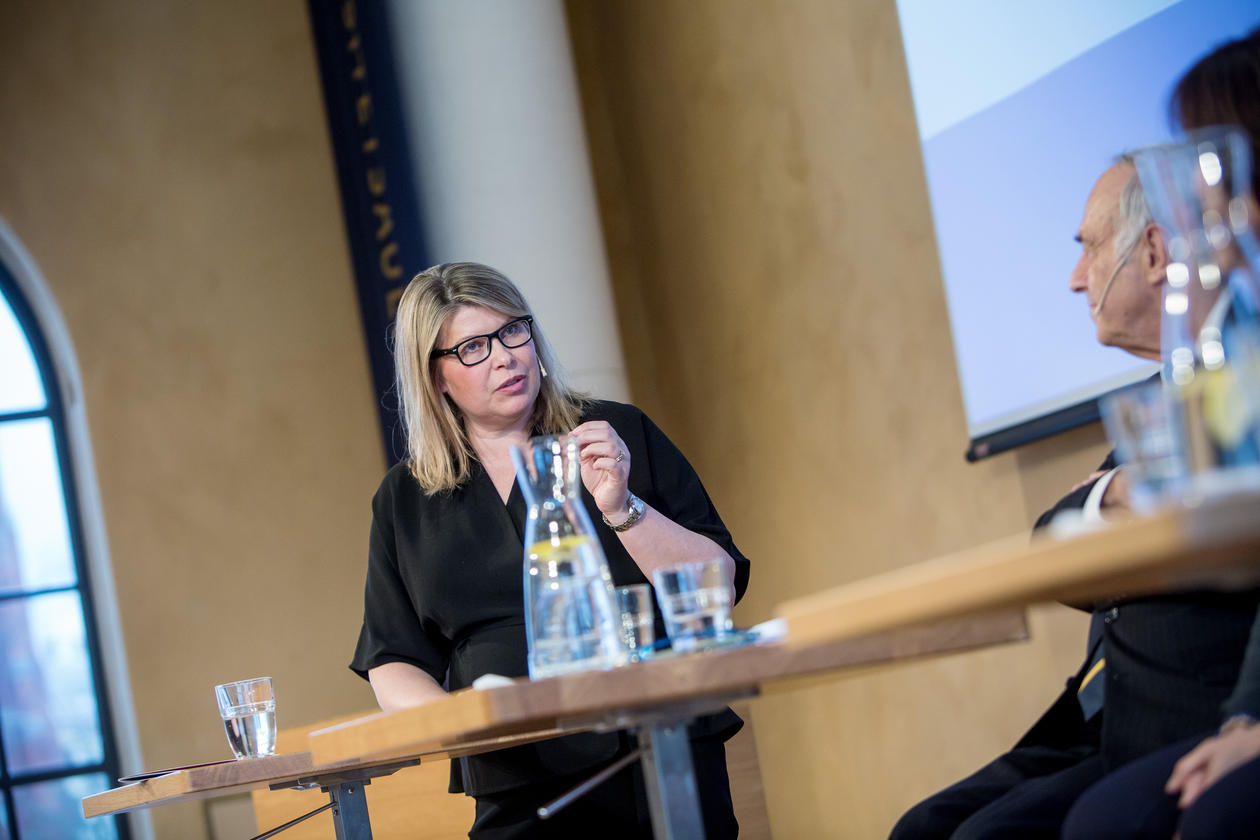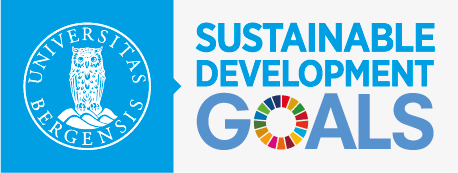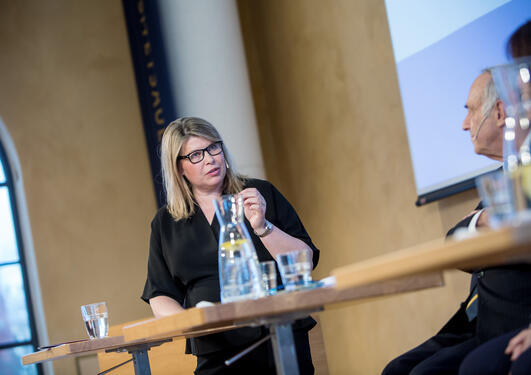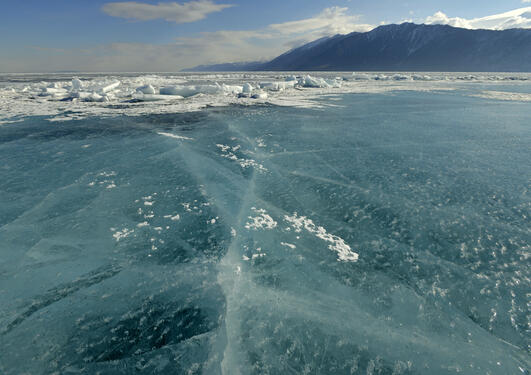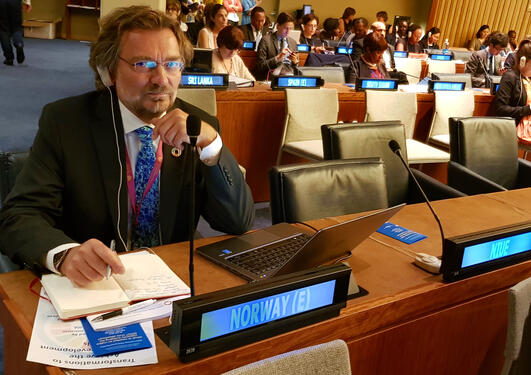A creative approach to climate teaching
Educating the climate researchers and leaders of the future and at the same time showing the scope and diversity in climate research in Bergen, is one of the aims when University of Bergen researchers are involved in several sessions at the UN in July 2019.
SDG13 course: Educating the leaders of the future
Main content
At the High-level Political Forum (HLPF) 2019, climate researcher Kikki Kleiven from the Bjerknes Centre for Climate Research at the University of Bergen(UiB) is participating in the side event “Research & Innovation 4 Climate Action”.
Creating clusters for interaction
The session is co-organised by the University of the West Indies (UWI) and UN DESA, and shows the initiative by the International Association of Universities (IAU) to establish an IAU SDG Cluster for each of the 17 Sustainable Development Goals (SDGs).
“I am excited about representing both the university and my field of research as part of a new partnership,” says Kleiven, referring to the recently established IAU SDG13 Cluster.
UWI leads the IAU SDG13 Cluster and UiB leads the IAU SDG14 Cluster. The two universities are also represented as members in the other university's cluster, creating a powerhouse for science advice and science diplomacy across the SDGs.
“Being both IAU SDG14 Cluster leader and the SDG14 Hub institution for United Nations Academic Impact, it is important to show the link between the Ocean and the rest of the SDGs, not the least SDG13 and climate,” says Kleiven.
She believes participating in such high-level forums both makes science more relevant in decision-making and pushes scientists to clarify and share their findings outside of their disciplines.
“To interact directly with the UN system means engaging directly with governments worldwide to find the best solutions for the challenges we share, including on climate change,” she says, “not the least the direct access we get to decision-makers, both in the UN system and government, civil society, industry, diplomacy, and more.
A unique course on climate
One of the things she will highlight in her HLPF side event presentation is UiB's unique course on SDG13, Climate Action, called SDG213. Course coordinator is Kleiven's colleague, Professor Kerim Nisancioglu.
“This is a course that has societal impact. Not the least due to its aim to educate the leaders of the future,” says Kleiven, “many students are already involved with the SDGs and by offering an interdisciplinary course like this, we hope to engage even more of our students in seeing how research and education can contribute to global sustainability.”
With the course showing the broad span of climate research at UiB and in Bergen, she believes the students are encouraged to think outside of their discipline and achieve knowledge of methods used in other fields of research.
“This creative approach to actively encourage diversity and having people discuss and find their way to compromises, via group work and other ways of student active learning, is a true strength of this pioneering course,” she says.
“By creating courses looking at the processes behind the scenes of and between the SDGs, the University of Bergen is educating more scholars who are able to offer science advice to decision-makers. You could say that these courses are at the forefront of what we do when it comes to preparing our students for their future career.”
Currently UiB is offering courses on SDG13, SDG14 and SDG15 (Life on land) on MA level. The courses are each one semester. The university plans to offer courses on all SDGs, and this is recommended in the report Education 2030, which is in its final phase of approval before implementation.
